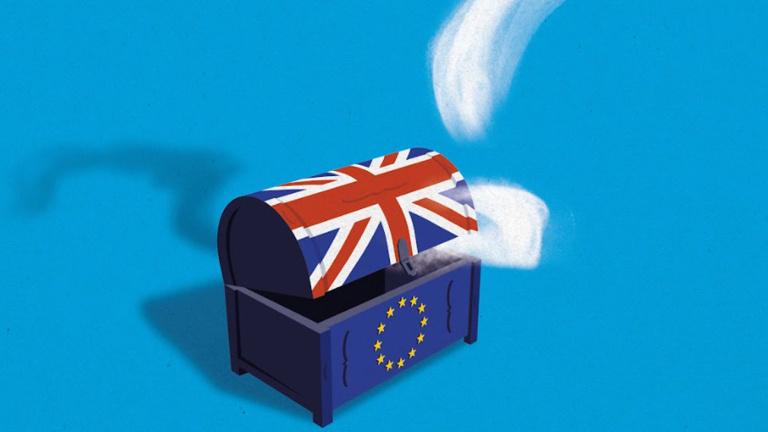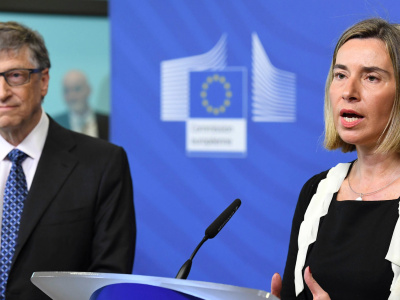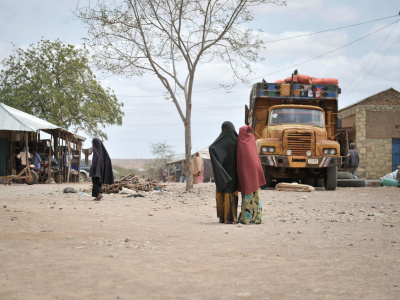
Africa’s relations with the UK: Negotiating a post-Brexit landscape
While it is important to understand how the EU and the UK move forward in the aftermath of the Brexit referendum, it is equally important for African stakeholders to understand whether the uncertainty created poses an opportunity or a threat to their interests.
From euphoria to uncertainty
If there was a level of euphoria for the Brexit campaigners following the referendum to exit the EU, it did not take long for the reality of the British people’s decision and its consequences to sink in. The referendum’s outcome ushered in an uncertain period for the UK and its partners. With the EU pushing a hard bargain, and the British bureaucracy seemingly stretched to negotiate with the EU and key partners, it became clear that the road ahead would not be an easy one. Inasmuch as UK politicians have talked up British prospects after the exit from the EU, the reality is that the UK is not negotiating from a position of strength at home and abroad, but from a position of weakness, as the geopolitical landscape continues to change.
Internal conflicts within the UK remain an obstacle for the key players in British politics. Members of Theresa May’s Conservative Party and Jeremy Corbyn’s Labour Party continue to disagree on the very contours of the Brexit negotiations and post-Brexit order (see, e.g., Bienkov, 2018). As illustrated in the slide by Michel Barnier (reproduced in this volume), the disagreements have revolved around whether the UK should adopt the ‘Norway model’ and be part of the European Economic Area (EEA), whether it should seek to become part of a customs partnership, the date for finalising negotiations, and whether they should even leave the EU in the first place, among other things (on the EEA, see BBC, 2018).
Looking from the outside: A view from Africa
From the African standpoint, this creates perceptions of a country unsure of itself and its future direction. Indeed, the picture from Africa is of a country struggling to face up to the consequences of the Brexit referendum. Countless parliamentary sessions and analyses from the business community and think tanks have as yet been unable to capture the ramifications of Brexit for Africa’s ongoing relations with the UK and the EU. South Africa is one of the UK’s largest trading partners in Africa, with bilateral trade reaching almost £10 billion (R173 billion) in 2017. There has therefore been much interest within South Africa in the unfolding developments.
At the time of writing, the second phase of the Brexit negotiations are ongoing. This second phase of the negotiations deals with the future of EU-UK relations, which inevitably will impact the position of both the EU and the UK in the world. While it is important to understand how the EU and the UK move forward, it is equally important for African stakeholders to discern whether the uncertainty created poses an opportunity or a threat.
Can the UK deliver on its assurances?
The UK has sought to assure African partners that Brexit offers more opportunities, particularly for expanding existing trade and development partnerships. However, whether this promise materialises remains to be seen, as the UK continues to be preoccupied with its most important task: accomplishing its exit from the EU. This will continue to consume much of its energy, forcing the British bureaucracy to prioritise its trade and development partners. The least developed countries (LDCs) have received assurances of continued duty free access to the British market, and there is hope that the UK will adopt looser rules of origin than those of the EU.
Mark Price, UK Minister of State for Trade, stated during a 2017 visit in southern Africa that the UK’s withdrawal from the EU would not mean a withdrawal from the world, but an increased openness and opportunities for partner countries (see Price, 2017). He also reiterated the UK’s commitment not to disrupt the trade relationship under the EU-Southern African Development Community (SADC) Economic Partnership Agreement (EPA) as the UK leaves the EU. He met with trade ministers and representatives from Botswana, Lesotho, Mozambique, Namibia, South Africa, and Swaziland. Other meetings have also been taking place with key trade and development partners across the continent.
Following the referendum, Tanzania chose to not ratify the regional EPA, seeking instead to wait things out and possibly get a better deal with the UK (Gopaldas, 2018a). However, the priority of the UK will continue to be the EU, where there are at least 759 treaties to be renegotiated, an effort that will consume much of the efforts of the UK bureaucracy (Gopaldas, 2018b). This will challenge the British bureaucracy’s capability to deliver on its multiple assurances to trade partners.
An opportunity for Africa’s leading economies?
Writing in the lead up to the Commonwealth Summit of Heads of State, Mabutho Shangase (April 2018) argues that Africa is currently better poised than ever before to strike favourable deals with the UK. He also argues that Britain needs Africa and the Commonwealth nations, as they are a significant market with an estimated population of 2.4 billion people. He posits that the Commonwealth nations stand to benefit more from their trade relations with the superior EU market than with the stand-alone British market. Indeed in 2016, the EU provided Africa with €21 billion in development cooperation and €32 billion in private investment, and much of Africa’s pan-African institutions continue to be funded by the EU (Maré, 2018). Given this reality, Africa’s leading economies will seek to extract greater benefits from a weaker UK eager to show its partners that it is open for business.
When one couples this with the many African suitors that already exist, it becomes clear that the UK will be playing catch-up. While relations remain strong with African countries, many of which were once colonies, it remains to be seen how the UK on its own can compete with diverse actors such as China, India, the EU, Turkey, the United States, South Korea, and Japan. All of these actors have their own regular summits with their African counterparts to discuss trade, development, and security matters affecting the continent and its partners and have grown their footprint on the continent in recent years. The UK is thus engaging with Africa at a time when many more options are available to the continent. This should bode well for some of Africa’s leading economies, which often have a greater ability to negotiate trade deals in their favour. Indeed, the EU will be out to prove that it is still the most lucrative market, while the UK will be out to make a case for itself in the post-Brexit order.
References
BBC News (2018, 9 May), ‘Brexit: Peers call for UK to remain in European Economic Area’.
Bienkov, Adam (n.d.), ‘Theresa May’s cabinet in chaos as Boris Johnson calls her Brexit plans “crazy”’. Business Insider South Africa.
Gopaldas, Ronak (13 April, 2018a), ‘Can Africa be the big Brexit winner?’ ISS Today.
Gopaldas, Ronak (2018b, 13 April), ‘Starting at next week’s Commonwealth summit, smart moves from both sides could benefit the UK and Africa’. ISS Today.
Maré, John (2018, 5 March), ‘Uncertainties of a post-Brexit world bring opportunities for SA and Africa’. BusinessDay.
About the author
Philani Mthembu is Executive Director at the Institute for Global Dialogue (IGD), an independent South Africa-based foreign policy think tank dedicated to the analysis of, and dialogue on, the evolving international political and economic environment and the role of Africa and South Africa. IGD is associated with the University of South Africa.
Twitter: @M_Philani
Read the full magazine issue







